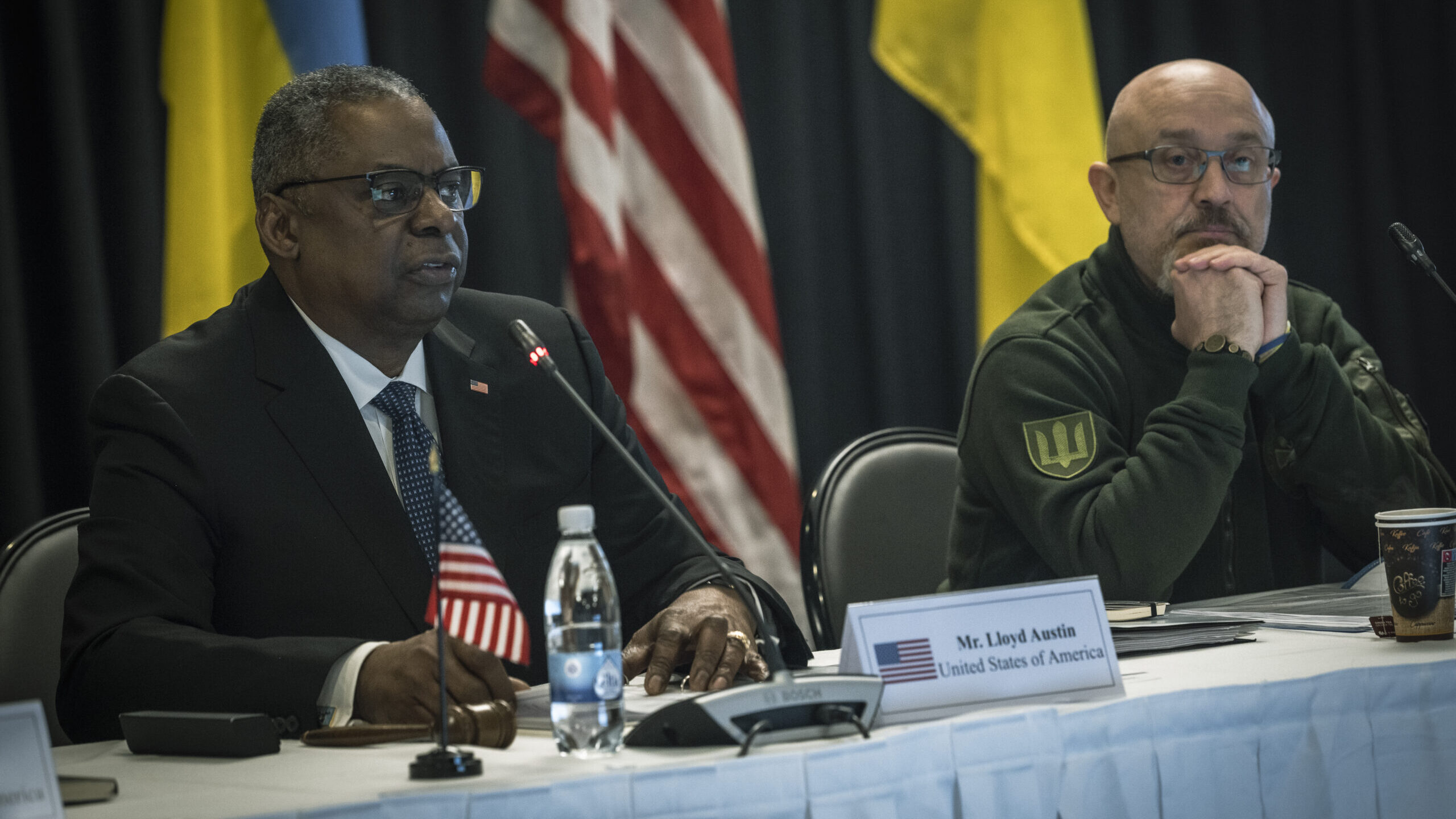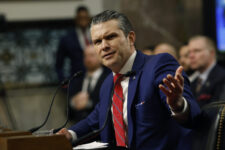
US defense secretary Lloyd Austin addresses media at the 11th meeting of the Ukraine Defense Contact Group at Ramstein Air Base, Germany (DoD)
WASHINGTON — Facing growing blowback, the Pentagon today disclosed the fullest timeline yet regarding the health of Secretary of Defense Lloyd Austin after the stunning revelation on Jan. 5 that the secretary has been hospitalized since the start of the New Year and that some key government officials had been left out of the loop for at least some of that time.
According to the timeline provided by Pentagon Press Secretary Air Force Maj. Gen. Pat Ryder, after undergoing an “elective medical procedure” on Dec. 22, Austin was discharged the following day and worked from home during the holidays, resuming duties he had temporarily transferred to Deputy Defense Secretary Kathleen Hicks. But after Austin “began experiencing severe pain” on the evening of Jan. 1, he was transported to the Walter Reed National Military Medical Center and admitted into the intensive care unit (ICU).
Austin remained conscious but endured “quite a bit of pain,” according to Ryder, and subsequently transferred “certain authorities” to Hicks again on the afternoon of Jan. 2. Staff members for Austin and Hicks as well as the Pentagon’s Joint Staff were made aware of the transfer by an email notification.
But it would not be until two days later that Hicks learned why the transfer occurred, Ryder confirmed. On Jan. 4, Austin’s chief of staff notified Hicks as well as White House National Security Advisor Jake Sullivan that Austin was hospitalized. Ryder attributed the lapse in communication to Austin’s chief of staff being “out sick with the flu.” (Austin also failed to notify the White House or Hicks of his Dec. 22 hospitalization.)
The extent of the duties Hicks assumed is not clear, though Ryder described them as “routine operational and management decisions.” Hicks “was fully authorized and ready to support the president on other military matters, should the need have arisen,” Ryder added.
That same day — Jan. 4 — the US launched a drone strike that killed the leader of an Iran-backed militia, a strike that USA Today reported had been “pre-approved” with President Joe Biden and monitored by Austin from his hospital room.
Ryder stated that Hicks’s and Austin’s chief of staff began working on “congressional outreach” on the evening of Jan. 4, though most members reportedly did not learn of Austin’s hospitalization until shortly before a public statement went out Jan. 5. Austin “resumed his full duties on the evening of Jan. 5,” Ryder said, and the secretary currently has a “good” prognosis despite continued “discomfort.”
Austin is out of the ICU but the end of his hospital stay has not been set, according to Ryder, who pledged to provide updates on the secretary’s status “as they become available.” In a statement Saturday, Austin accepted “full responsibility” for the failure to notify the public of his health and “committ[ed] to doing better.”
The secrecy surrounding the visit, and the apparent failure to notify senior officials, much less the public, prompted some critics to call for Austin’s resignation — a move that Ryder said Austin did not plan to make.
NEW: US @SecDef Lloyd Austin "has no plans to resign" per @PentagonPresSec MajGen Patrick Ryder
"He continue to stay focused on conducting his duties as the secretary"
— Jeff Seldin (@jseldin) January 8, 2024
President Joe Biden also “looks forward to having him back at the Pentagon,” White House National Security Council Spokesman John Kirby said today when asked about calls for Austin’s ouster.
Republicans on Capitol Hill have been leading some of the demands for Austin’s resignation, while many key Democrats have expressed frustration with the episode. Sen. Jack Reed, a Rhode Island Democrat who chairs the Senate Armed Services Committee, in a statement today described the events as a “serious incident” that requires “transparency and accountability” from the DoD.
“This lack of disclosure must never happen again,” Reed said.
Ryder vowed that officials would take steps to increase transparency and improve notification processes as backlash over the ordeal grows. He also apologized for his own role in the debacle. Ryder learned of the secretary’s hospitalization the afternoon of Jan. 2 and conceded he “should have tried to learn more and to press for an earlier public acknowledgement.
“So I offer my apologies and pledge to learn from this experience. I will do everything I can to meet the standard you expect from us,” he said.
DOGE or be DOGE’d: The Army needs to preemptively start cutting
The Army should look to make its own cuts before DOGE makes the decision for it, John Ferrari says in this op-ed.



























